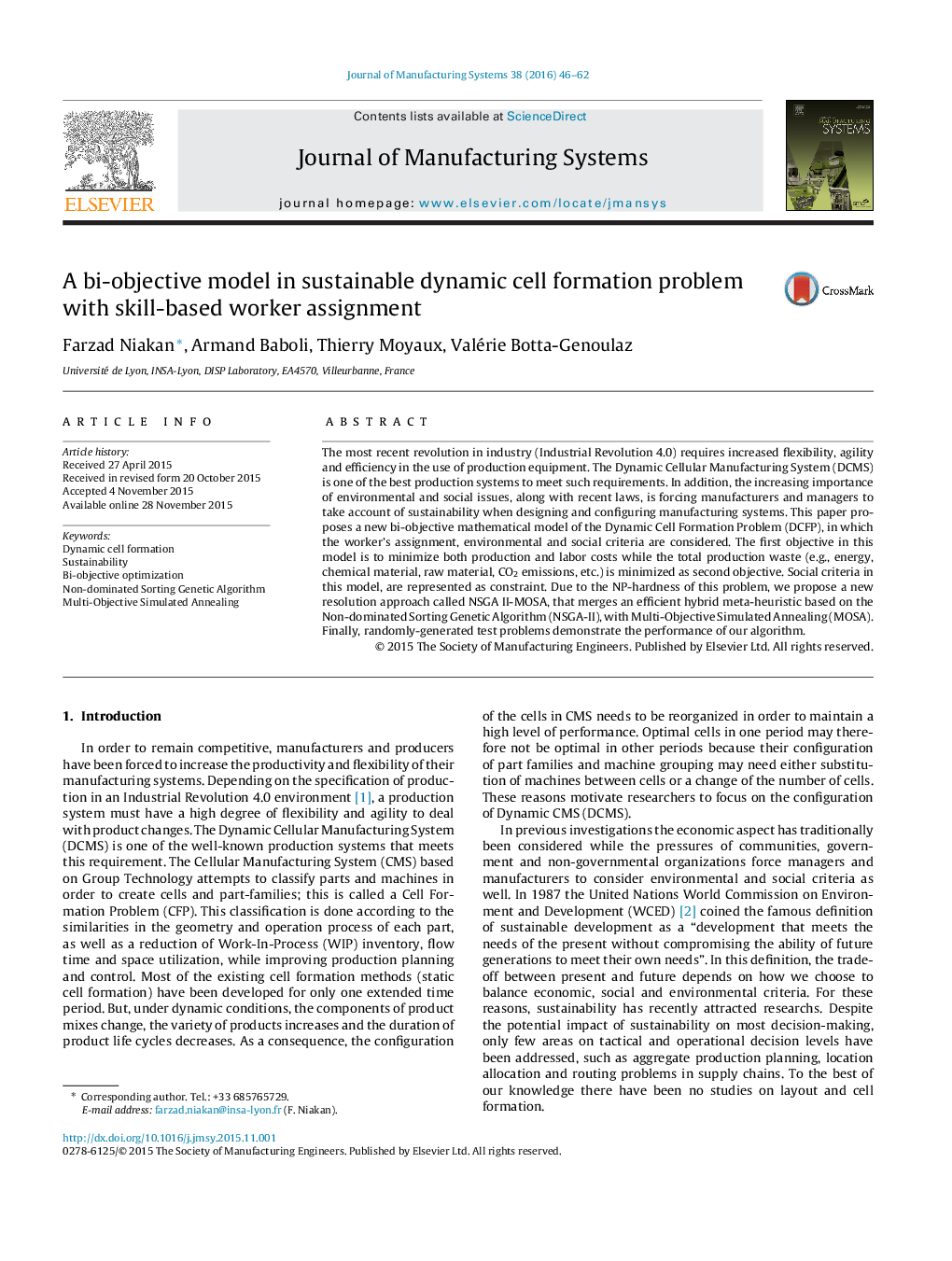| کد مقاله | کد نشریه | سال انتشار | مقاله انگلیسی | نسخه تمام متن |
|---|---|---|---|---|
| 1697377 | 1519253 | 2016 | 17 صفحه PDF | دانلود رایگان |
• The model addresses the sustainable dynamic cellular manufacturing system problem.
• Total production waste is considered as environmental aspect.
• The worker assignment is done according to the worker's skill level and the machine's skill level.
• The worker assignment is done based on noise exposure level and Daily Noise Dosage (DND).
• A Hybrid of NSGA-II and MOSA, is developed to solve and improve the quality of solutions.
The most recent revolution in industry (Industrial Revolution 4.0) requires increased flexibility, agility and efficiency in the use of production equipment. The Dynamic Cellular Manufacturing System (DCMS) is one of the best production systems to meet such requirements. In addition, the increasing importance of environmental and social issues, along with recent laws, is forcing manufacturers and managers to take account of sustainability when designing and configuring manufacturing systems. This paper proposes a new bi-objective mathematical model of the Dynamic Cell Formation Problem (DCFP), in which the worker's assignment, environmental and social criteria are considered. The first objective in this model is to minimize both production and labor costs while the total production waste (e.g., energy, chemical material, raw material, CO2 emissions, etc.) is minimized as second objective. Social criteria in this model, are represented as constraint. Due to the NP-hardness of this problem, we propose a new resolution approach called NSGA II-MOSA, that merges an efficient hybrid meta-heuristic based on the Non-dominated Sorting Genetic Algorithm (NSGA-II), with Multi-Objective Simulated Annealing (MOSA). Finally, randomly-generated test problems demonstrate the performance of our algorithm.
Journal: Journal of Manufacturing Systems - Volume 38, January 2016, Pages 46–62
